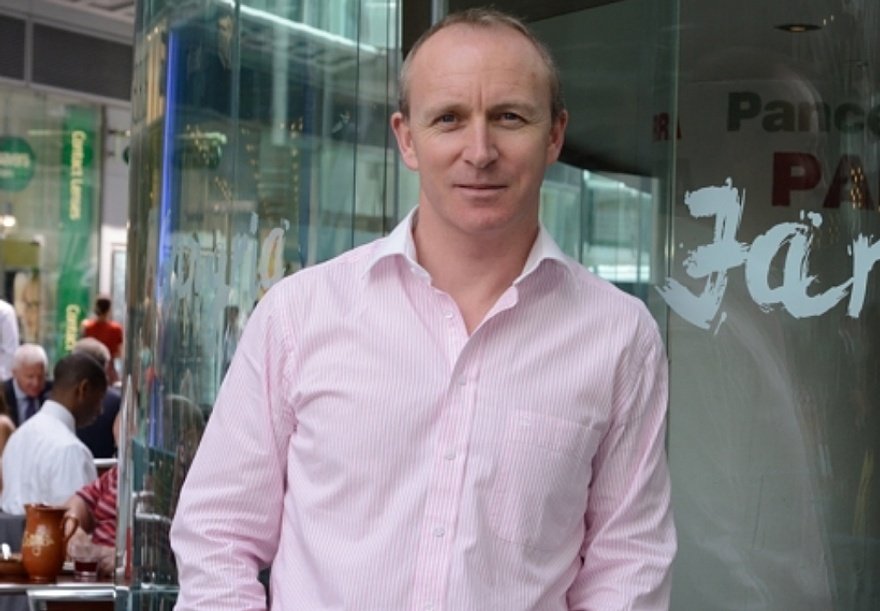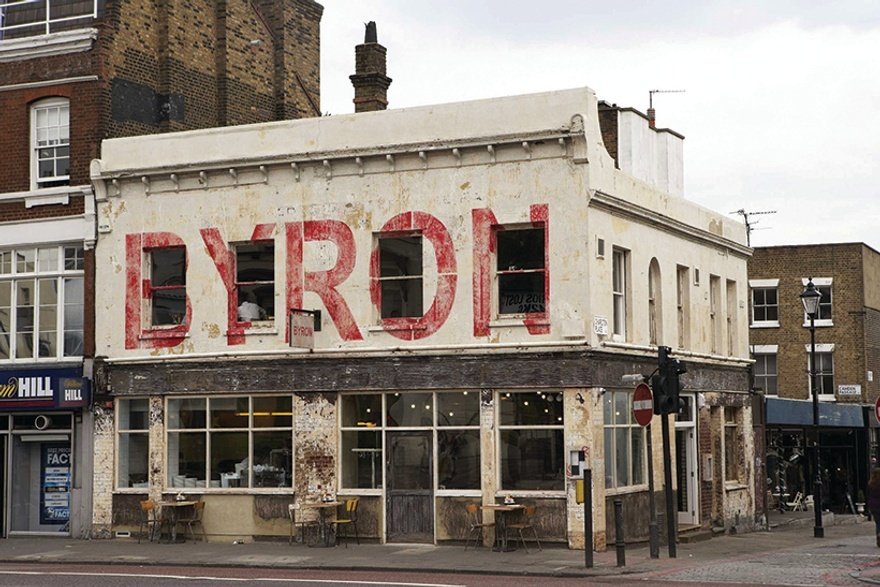Once holding the reputation for the best burgers in Britain, Byron's recent history has been less than illustrious. Chief executive Simon Wilkinson tells David Harris how the slimmed-down group is using the pandemic as a catalyst for change.
W hat next for Byron? The casual dining group, founded in 2007 by entrepreneur Tom Byng, once had a reputation for serving some of the best burgers in Britain. It became a magnet for middle-class diners and was so highly regarded that just six years after the first restaurant opened in Kensington High Street the group was sold for £100m.
For Byng's backer, the Gondola group, itself owned by private equity group Cinven, that sale was exactly what private equity firms are set up to do. An initial investment, successful expansion over a period of around five years, then a sale at a healthy (unspecified) profit.
Unfortunately, Byron has had a painful time since. Not only did profits turn into losses but it hit the headlines for all the wrong reasons.
In 2016, 35 of its staff were arrested as illegal immigrants following a Home Office raid on a Byron training session – a raid in which Byron management co-operated. Those disgruntled at that co-operation later released thousands of cockroaches and locusts in two of its London restaurants, forcing their temporary closure.
Then, in 2017, a teenager died of an allergic reaction after eating a chicken burger that contained buttermilk. The same year the once profitable company's pre-tax losses were £54.7m.
In 2018 Byron closed 19 sites in an attempt to restructure and reinvigorate itself, leaving 50 restaurants still operating.
But, the Covid lockdown on a backdrop of hospitality-wide challenges saw Byron fall into administration this summer, with 20 of its sites sold to a new owner, Calveton UK, for £4m, a painful contrast to the £100m it had been sold for just seven years earlier. As part of the pre-packaged deal 31 of Byron's outlets were closed and 651 jobs cut, leaving 551 staff.
You might think that all this would make Byron's relatively new chief executive, Simon Wilkinson, miserable. Not a bit of it. In fact, insofar as it possible to view administration and lockdown as an opportunity, he does so.
Wilkinson says: "You can view these things two ways. Either you see it simply as a disaster or you can try to take some positives out of it. For Byron, it probably accelerated some initiatives we would have had to take anyway."
Lockdown, in other words, was far from an unmitigated catastrophe for Byron. In order to put Wilkinson's comments in perspective, you have to understand his analysis of where the company had got to when he took over as chief executive in May 2019.
He says: "There had been over three years of mismanagement, which can be summed up as three mistakes. They put all their money into expansion, sometimes at the expense of the existing estate; they went into locations that were not suitable; and they paid too much rent in many of those locations."
He adds that the business handled the immigration problem badly and that it should have had systems in place that ensured that it was not employing anyone without legal status to work in the country.
In short, says Wilkinson, Byron "lost its way", while at the same time "smaller companies did what Byron was doing well and then surpassed it".
The revival plan
Turning that situation around is what Wilkinson is being paid to do by Calveton and from the start he had a straightforward idea of how to do it.
The first stage involved slimming the company down, getting rid of the sites that were not suitable, and making Byron leaner and fitter. Not only has the workforce been cut and unworkable sites ditched, but the central cost base has also been slashed. Brutal though it might seem, the fact that these changes happened so quickly because 2020 has been so turbulent might work to Byron's advantage.
The second stage of the Wilkinson survive-and-prosper plan is to improve the quality of what Byron offers, making sure that it once again becomes a leader in its sector. Here he has started by slimming down and improving its menu: "a new bun, new fries, better chicken".
Expansion is also on the menu again, just "more focused" in its manner than Byron tried before, Wilkinson says. He adds: "Our investors don't want just the 20 sites. We want to expand. We haven't got any numbers in mind, but our aspiration is to have the largest share of the premium burger market."
Wilkinson sees the main competition as ranging from Five Guys to GBK and Honest Burgers, as well as independent burger operators.
Calveton not only chose to keep Wilkinson on when they bought the Byron sites in May, but he seems to have been very much part of the deal. The Calveton team knew Wilkinson from his days at La Tasca, which they also once considered buying. It was at La Tasca that Wilkinson acquired a reputation as a man who could turn an ailing business around, qualities which Calveton wanted in Byron's case.
Wilkinson became chief executive of La Tasca in 2011 and took it into a company voluntary arrangement in 2012. He restructured the business so that by 2013 it had doubled earnings year-on-year to £4m and in 2014 it was sold to Casual Dining Group for more than £25m. Many of the things that Wilkinson did at La Tasca are being emulated at Byron – including a change in menu and the adoption of new technology.
One of the functions of this is to help develop Byron's home delivery capability, and it is already running two ‘dark' kitchens to achieve this goal.
‘Turnaround specialist', though, is not necessarily a label Wilkinson welcomes. He says: "I don't really like to be pigeon-holed and if you get a job as a chief executive, it is quite likely to be at a company that needs some help. Companies very rarely get rid of chief executives if the company is doing well."
If Calveton is keen on Wilkinson, it seems that he likes Calveton too. Although Calveton is a private investor, just like previous owners, Wilkinson says one of the main differences is that Calveton has stumped up the money itself (importantly only £4m, not the £100m required in 2013). The previous owner financed Byron partly through bank debt, which is not uncommon, but does have the downside of the business having to pay interest on that debt. Put simply, this can work well when things are going well, but badly when they are not. Debt, unsuccessful sites and high rents is a cocktail for failure.
You can view these things two ways. Either you see it simply as a disaster or you can try to take some positives out of it
The fact that Calveton has not borrowed to finance the Byron deal means that interest will not drag it down, and what Wilkinson calls the "move away from tired property" should also help future profitability.
What happens next is partly dependent on events, like everything else in the hospitality business, but there is reason for optimism. Recent rumours that Calveton is planning to make a bid for rival GBK are denied by Wilkinson.
What Byron's owners clearly have decided is that, as a slimmed-down version of an old favourite, Byron will emerge from the other side of the Covid crisis as a leaner beast, keen to take advantage of expansion opportunities as the industry-wide restructure continues in 2021. Crucially, Byron's lack of debt should make it much better placed to do just that.
Continue reading
You need to be a premium member to view this. Subscribe from just 99p per week.
Already subscribed? Log In












